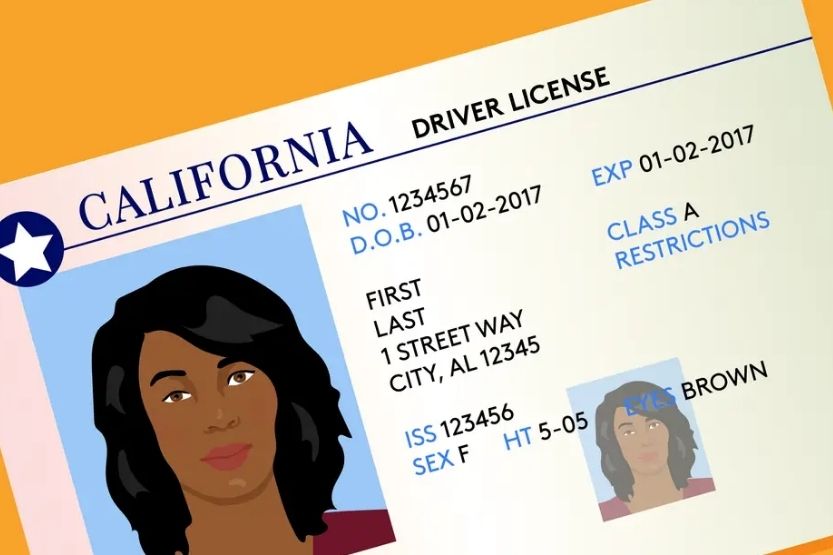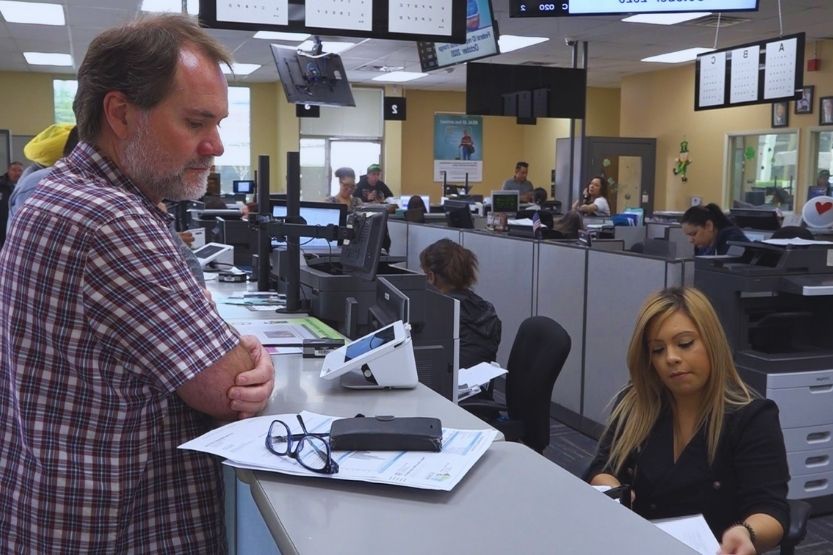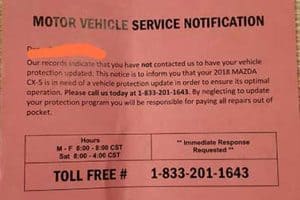If you spend part of the year in another state, then it would be very convenient for you to have a driver’s license in each state. But is it possible? Can you live in one state and have a driver’s license in another?
If you are only temporarily living in another state, there is no need for you to get a driver’s license. But if you become a permanent resident of that state, you need to get a driver’s license in that state. You should get your driver’s license within 30 days of your permanent residency.
To avoid violating the law, check the driving regulations before using your current driver’s license. Some states require you to take written and vision exams. Each state also has its minimum age requirement.
Read on to learn more about having a driver’s license and using it in another state.
Also, we hope you find the links here useful. If you purchase something through a link on this page, we may get a commission, so thank you!
Can You Live in One State and Have a Driver’s License in Another?

Get a License Within 30 Days of Transfer
You don’t need to get a driver’s license in another state if you reside there temporarily. However, if you have moved to that state and no longer intend to transfer elsewhere, you must get a driver’s license within 30 days of your transfer.
The driver’s license you got from your original state will permit you to drive across state borders, provided you are at the right age.
Observe this rule when you attend school in another state or go on a cross-country tour.
But if you want to live in another state permanently, you need to get a new driver’s license from that state. You should register your car with the local DMV within 30 days of your permanent transfer.
Definition of Permanent State of Residence Varies
If you live in a certain state for most of the year, that is your permanent state of residence, especially if you own a house there and you vote and pay your taxes there. Perhaps you have also enrolled your kids in a school in that state and are enjoying your homeowner’s tax exemption on your property.
Some states also consider you a permanent resident if you have lived there for at least six months. So, if you have a driver’s license from another state, you need to apply for a new license from the DMV of your new state of residence.
Additionally, be aware that the definition of permanent residency varies from state to state. So, study the state’s driving requirements and rules and regulations before applying for a new driver’s license.
Can You Drive in Canada With a US License?
Can You Have Two Driver’s Licenses From Two Different States?
American Citizens Can Only Have One License in the U.S.
You cannot have driver’s licenses from two separate states. You need to understand that driving requirements and driving rules and regulations may differ from state to state. An American citizen can only have one license in the United States.
So, you can use your driver’s license in any state in the country, provided that you legally obtained it.
Prevent a Person from Committing Multiple Driving Offenses
The DMV issues just one driver’s license to a particular person to prevent that person from committing multiple driving offenses. This provision also helps organize the process of monitoring licenses through the National Driver Registry.
NDR Records the List of Drivers with Offenses
The list of driving offenses of licensed drivers, drivers who have revoked licenses, and other relevant drivers’ information is all gathered in a managed and controlled database by the NDR.
They use this database to help monitor drivers who are repeat offenders. This enables police officers to deal with these drivers based on federal laws.
Again, with just one license for every driver, it will be easy for law enforcers to keep track of the driving records and multiple offenses of the same person. If you have two driver’s licenses, you could use the other license if the officers restricted or suspended your first license.
This is why the driver’s licensing office will always check with the NDR the type of driver’s license you are applying for.
What If I Fail to Get a Driver’s License from My New State?
You will be violating the law if you fail to get a driver’s license from your new state within 30 days of your permanent transfer.
Sanctions
There is a possibility that they will charge you with certain sanctions such as:
- Hefty fines,
- Impound your car,
- Suspend your license, or
- Jail.
So, don’t treat this requirement lightly. They will consider it a serious offense if you do. The severity of the sanctions depends on the states that are implementing them. Regardless, you will be suffering the same fate as the unlicensed drivers in that particular state.
It is better to start your new life in your new state on the right foot. So, get your new driver’s license from your new state.
Penalty for Having Two Driver’s License

Since we are already on the subject of sanctions, we ought to discuss the penalties you can incur if you hold and use two driver’s licenses. The Code of Federal Regulations has issued certain rules and guidelines about issuing ID cards and driver’s licenses.
It implements its 6 CFR § 37.29 – Prohibition against holding more than one REAL ID card or more than one driver’s license.
A Person in the United States Can Only Hold One REAL ID Card
One of the provisions of this ruling is that a person in the United States can only hold one REAL ID card. This person cannot hold a REAL ID driver’s license and a REAL ID identification card simultaneously.
Nothing shall prohibit a person from holding a REAL ID card and a non- REAL ID card unless prohibited by their state.
Receiving State Must Confirm the Individual Has Terminated the Second ID
Another provision of this ruling says that if the state has received information that a person holds a REAL ID card in another state, the receiving state must confirm that the individual has terminated the ID.
Or the state is responsible for ensuring that the person is in the process of terminating the REAL ID driver’s license or identification card.
California
According to this law, California has set a certain penalty for not changing the out-of-state license. California Vehicle Code § 12511 says that “No person shall have in his or her possession or otherwise under his or her control more than one driver’s license.” It is an infraction.
The basic fine for violating this ruling would be $25 if the apprehending officer issued a correctible offense citation. The penalty would go up to $35 if the police officer issued a non-correctable offense citation. That’s not yet the end of this non-correctable offense.
The offending party will also be required to pay additional fees, bringing the total to about $238. The details are discussed in the traffic penalty schedule of California Courts.
Georgia
Similar regulatory codes prevent a person from holding two driver’s licenses simultaneously. One of them is the Georgia Code § 40-5-20(c)(1)(E). Most probably, other states have a code similar to California and Georgia.
So, it is best to look into these areas before attempting to use your current driver’s license in another state that you don’t know about.
Again, can you live in one state and have a driver’s license in another? Unless one of your licenses is a one-state-only license, you cannot have more than one driver’s license. Note that New York does not give a one-state-only license.
Can I Renew My Existing Driver’s License in Another State?
Transfer Your Current Driver’s License to Your Permanent Residence
You cannot renew your license in another state. However, you can transfer your current driver’s license to your permanent residence.
Basic Requirements
Be aware that they may have some requirements different from the state you are now in. Basic requirements, though, are almost the same, which can be the following:
- Your existing driver’s license
- Pass a written test
- Pass a vision test
- Proof of identity
- Social security number
- Proof of new residence
- Additional identification (if necessary)
To prove your identity, you can present the following:
- Birth certificate,
- Any government ID,
- Passport, or
- Billing address.
Take a Driving Exam or Enroll in a Driver’s Education Course
Your new state may also require you to take a new driving exam or at least enroll in a driver’s education course before they issue your new driver’s license. The point is you need to comply with all their requirements if you want to get a driver’s license in your new state.
Even if you hold a license but it has already expired, you have to apply for a new one. If you are under 18 and have a temporary permit, you must follow the driving and traffics laws observed in your new state.
Can You Hold On to Your Existing Driver’s License?
You can only keep your out-of-state driver’s license if you are in Florida. But you can only do so if you only plan to stay in Florida temporarily.
The Florida Department of Highway Safety and Motor Vehicles has a ruling that says part-time residents may choose to keep their valid out-of-state license and still get a Florida driver’s license which stipulates that it is valid only in Florida.
But they amended this regulation. They are not going to renew this type of license. The change came about as the Florida driver’s licenses laws comply with the REAL ID Act mandates.
To be sure, you need to communicate with the DMV of the state that you are going to move in. Ask them if they will allow you to keep your current driver’s license if you move to their state.
Why You Need to Get Your Driver’s License From Your State of Residence

As you will notice, there are some problems if you insist on retaining your current driver’s license if you are transferring your residence to another state. Here are the advantages of getting a new license from your new state:
1. Use Your New License in Your Previous State of Residence
When you get your new license from your new state, you can also travel to your former state of residence. Nothing has changed. When residing in your previous state, you can also use your driver’s license to drive in your now-new state.
Click here to see The Ridge Minimalist Slim Wallet For Men on Amazon.
In other words, you can use your driver’s license anywhere in the states, so long as it is only for temporary stays.
2. Useful for Other Purposes
You can use your driver’s license as your proof of identity on any business or personal transaction with other people in your new state.
Since you are new in this locality, other people may see you as a stranger. When that happens, you can show them your valid driver’s license issued by the state where they and now, you also live.
3. Processing of Insurance Claims Will Be Easy
If you were in a car accident and damaged your car, you must process its insurance to cover the damages.
Click here to see Rove R2- 4K Dash Cam on Amazon.
This will be easy because, now, the address indicated on your driver’s license is the same as your permanent address.
Insurance claims often crop up because of the discrepancy in the claimant’s home address from the address indicated in their driver’s license.
4. No Problems with Car Repairs
When your insurance claim is processed quickly, you will be able to have your car fixed right away. There’s no need for you to produce other proofs of your identity. The driver’s license you are holding, issued by the local DMV, is enough proof.
Click here to see AstroAI Air Compressor Tire Inflator on Amazon.
Frequently Asked Questions
Here are some of the questions people ask about using their driver’s license in another state, along with their respective answers:
How Long Can You Use Your Existing Driver’s License In Your New State?
You can only use the present driver’s license you are holding for a maximum of 30 days. The number of days varies by state, though. But 30 days is true in most cases.
Some states require you to get a new license immediately, such as Vermont and Minnesota. Other states like Illinois and Wyoming allow you to use your current license for 90 days.
If My Current License Is Suspended, Can I Get a New License in My New State?
No, this is not allowed by any state. You cannot move into a new state and get a license there if your current license in your previous state is suspended. You need to be aware that all states in the United States use the NDR as their database to check driver’s records.
When you apply for a driver’s license in the state you are transferring to, they will check the NDR and see that you have a suspended license. They will not grant your new driver’s license request because you are included in their list of problem drivers.
Can I Use My Driver’s License in Any State?
Yes, if your driver’s license is not expired and is valid, you can drive your car in any state in the country. But that permission is qualified. Usually, you are only permitted to drive using your license in any state if you are on tour or are visiting someone or someplace in that state.
If you want to reside permanently in a certain state, you need to give up your current license and get a driver’s license from the state where you want to stay permanently.
Will Getting a Traffic Ticket in Another State Affect My Existing Driver’s License?
Yes, an out-of-state traffic ticket will affect your driving record in your home state. Most of the states in the country are members of the “Non-Resident Violator Compact” or the “Driver’s License Compact.”
These member states have agreed to share driving information about license suspensions and traffic convictions. So if you were given a traffic ticket in another state, it would be reflected on your driving record at your home state.
Conclusion: Can You Live in One State and Have a Driver’s License in Another?
You don’t need to get a driver’s license in a particular state if you temporarily live there. However, if you want to live in that state permanently, you have to get your required driver’s license.
You should get that license within 30 days of being granted permission to stay as a permanent resident.
Read next:















![6-seater Trucks [Which Pickups Have 6 Seats?] 6-seater trucks](https://roadsumo.com/wp-content/uploads/2022/03/6-seater-trucks-150x150.jpg)


